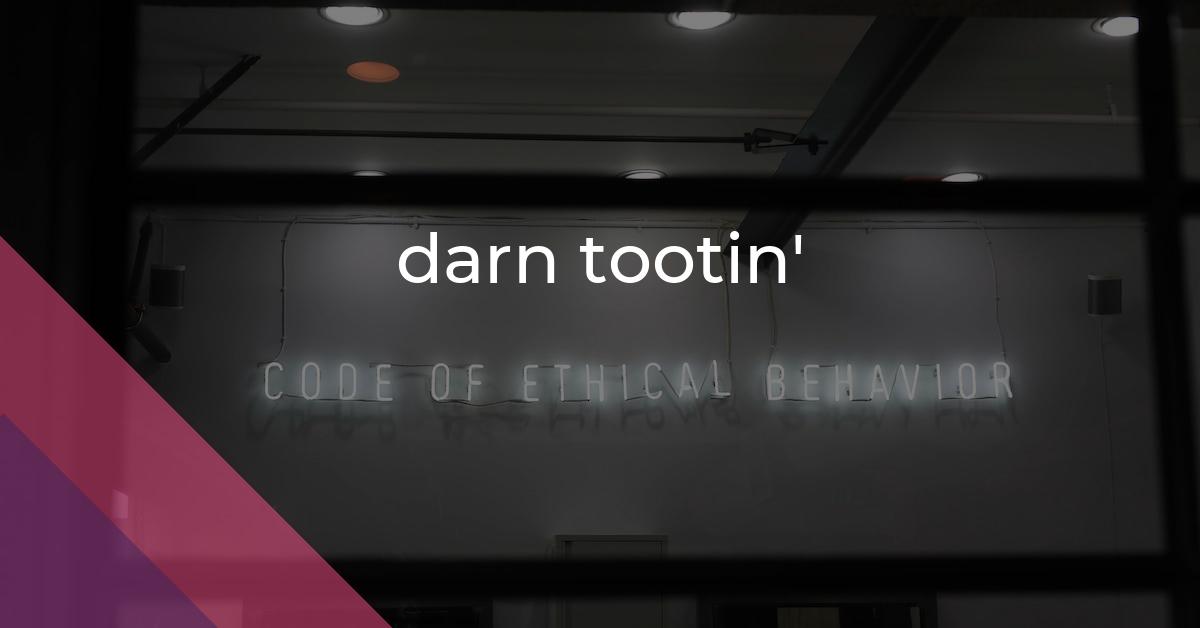darn tootin’: Idiom Meaning and Origin
What does ‘darn tootin'’ mean?
The idiom "darn tootin'" is an informal expression used to emphasize agreement or certainty with something. It can be seen as a stronger version of "you bet" or "absolutely."

Idiom Explorer
The idiom "knock it off" means to stop a certain behavior or to cease doing something annoying or inappropriate.
The idiom "I tell you" is used to emphasize the speaker's earnestness or certainty in what they are saying.
"In a pig's arse" is an idiom used to express strong disbelief or denial. It indicates that something is highly unlikely or impossible to occur. The phrase draws on the image of an unimaginable or absurd situation, associating it with the rear end of a pig for emphasis.
The idiom "I'm telling you" is used to emphasize the speaker's certainty or conviction about something they are saying. It serves to convince or persuade the listener to trust and believe what the speaker is telling them.
The idiom "I'll be damned" is used to express shock, disbelief or surprise when something unexpected or unbelievable happens.
The idiom "I'll be bound" is used to express certainty or agreement with something. It implies that the speaker is confident in the truth or accuracy of a statement or prediction.
The idiom "I can tell you" means to confidently assert or affirm something, often used to emphasize the speaker's certainty about a statement. It implies that the speaker has knowledge or experience to support their claim.
The idiom "get outta here" is used to express disbelief or surprise at something someone has said. It is often used in an informal or casual setting to show skepticism or astonishment. The phrase can also be used playfully or sarcastically.
Decoding Darn Tootin'
Darn tootin' is an American idiom used in informal contexts. It is similar to saying "absolutely" or "that's for sure." The term "darn" is a less explicit version of "damn" and "tootin'" means "true" or "accurate."
The idiom "darn tootin'" originated from the phrase "you bet your sweet patootie," which was popular in the early 20th century. "Patootie" comes from Yiddish and means "buttocks." Over time, the phrase evolved into "darn tootin'," simplifying the expression while retaining its meaning.
"Darn tootin'" is primarily used in spoken language and informal writing, particularly in American English. It may be more prevalent in certain regions or among specific social groups. While widely understood within the United States, it may be less familiar to non-native English speakers or those from other English-speaking countries.
The idiom "darn tootin'" is commonly used in casual conversations, movies, TV shows, and popular media. It has become a part of the cultural lexicon and is often used for comedic effect.
Another idiomatic expression related to "darn tootin'" is "damn straight." This phrase is used to emphatically agree with a statement. It is similar in meaning to "darn tootin'" and is often used in the same informal contexts.
The idiom "darn right" is another expression that conveys strong agreement. It is equivalent to saying "absolutely" or "that's right." Much like "darn tootin'" and "damn straight," "darn right" is used in informal conversations.
One similar phrase is "doggonit," which is a playful expression used to express frustration or disappointment. It can be used in place of stronger language and is often accompanied by a light-hearted tone. While "doggonit" may not directly convey agreement like the aforementioned idioms, it is related to the informal, conversational style.
An additional idiom related to "darn tootin'" is "I'll be danged." This phrase is used to express surprise or disbelief. It can be seen as an exclamation of astonishment, similar to saying "wow" or "I can't believe it."
Finally, we have "I'll say," which is a phrase used to confirm or support a statement. It conveys agreement or emphasis, similar to "darn tootin'," "damn straight," and "darn right." It is often used to indicate a strong level of certainty.
"darn tootin'" is an American idiom that has its roots in earlier expressions. It is commonly used in informal contexts, particularly in American English. Alongside phrases like "damn straight," "damn right," "doggonit," "I'll be danged," and "I'll say," it is part of the informal, conversational style of communication. These idioms add color, emphasis, and expressiveness to the English language.
Example usage
Examples of how the idiom darn tootin' can be used in a sentence:
"I finally finished my project on time, and you can bet I'm feeling darn tootin' proud of myself!"
"That movie was darn tootin' good, I highly recommend it to everyone."
"I'll be darn tootin' if I let anyone ruin my vacation with their negativity."
More "Slang" idioms



